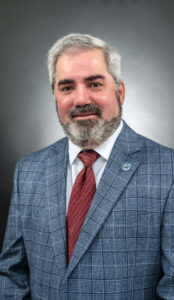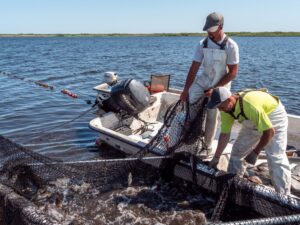
BY MIKE RUBIN
Florida seaports can breathe a temporary sigh of relief now that federal officials have rejected a fundamentally flawed petition designed to protect about 50 newly discovered Rice’s Whales.
The petition, which threatened to shut down Port Tampa Bay, SeaPort Manatee, Port Panama City and the Port of Pensacola on Florida’s Gulf Coast, sought to ban all nighttime shipping traffic, and impose a dangerously slow 10-knot daytime vessel speed limit.
It was a punishing proposal riddled with a lack of scientific evidence clearly identifying the need for imposing such restrictive regulations in Florida’s navigable waters. More disturbingly, instead of conducting an independent review on the need for endangered species protections for this newly discovered whale, the scientist who “discovered” the whale also served as the author calling for endangered species protection status.
This type of science has smelled fishy from the start.
NOAA’s recent announcement that they would deny the petition, which was filed by environmental groups, including Earth Justice, is actually more like a double edge sword. NOAA has now turned its attention to prioritizing other conservation actions related to the Rice’s whales, including finalizing critical habitat for the species, conducting additional vessel risk assessments, and developing a recovery plan for the species.
The Biden administration has been relentless in pushing for additional restrictions. NOAA Fisheries Assistant Administrator Janet Coit recently told the Senate Energy and Natural Resources Committee that the agency is expected to finish these rules by the end of the year. However, these measurers weren’t taken up before Congress adjourned for the holidays.
From the outset of the National Oceanic and Atmospheric Administration (NOAA) Fisheries proposed rule, it presented a clear and present danger to Florida’s economy, its public safety and the security of our nation.
“Florida’s maritime activities are vitally important to our state’s economy and supports thousands of jobs. Much of the Gulf of Mexico, especially my district, would fall under the 10-knot rule,” said Florida Congressman Neal Dunn. “This nonsensical and catastrophic rule would slow down transportation and devastate the seafood industry.”
Had NOAA implemented the rule, Florida would be forced to hang a “closed for business” sign. Here’s why:
- Florida is not an oil refining state, and therefore must import fuel/petrol from neighboring Gulf of Mexico port states like Louisiana and Texas. Florida’s seaports distribute 95 percent of all fuel that keeps Floridians and our state’s economy moving.
- During hurricanes or other times of natural disaster, a nighttime ban on vessel traffic, combined with daytime vessel speed limitations would have exacerbated Florida’s ability to recover from storms.
- All branches of our nation’s military use the Eastern Gulf Test and Training Range (GTTR) for national security training. NOAAs proposed rule would have restricted live fire munitions, compromising Department of Defense and Homeland Security activities, the Defense Support Initiatives Committee told NOAA.
The Florida Ports Council and its 16 member ports have a long history of protecting Florida’s environment to preserve our state’s natural environment. Collectively, Florida’s seaports are using innovative technology to champion the use of cleaner, alternative fuels, reducing engine emissions from port equipment, recycling oil used in cranes, capturing more stormwater than ever, and ensuring this stormwater is cleaner before it’s discharged back into the environment.
Additionally, Florida’s ports have played a key role in raising awareness of wildlife and marine life, and supporting efforts like bird sanctuaries, clam restoration, annual Right Whale festivals, and more.
We are actively engaged with partner organizations, including the Florida Recycling Partnership, Ocean Alliance Group, Green Marine, Tampa Bay Estuary Program, Maritime Sustainability Team, Manbirtee Key Bird Sanctuary, Coral Reef Research and Restoration, American and Florida Shore and Beach Preservation Association, Leadership in Energy and Environmental Design (LEED) Green Building Rating, and more.
The Florida Ports Council continues working with Florida’s federal delegation, and our maritime partners to help ensure Florida’s seaports won’t be negatively impacted by any additional federal rules or regulations.
And this is an important issue to keep our eye on, because potential federal actions could also impact Right Whale regulations that most specifically impact JAXPORT and Port Canaveral.
Mike Rubin is President & CEO of the Florida Ports Council











